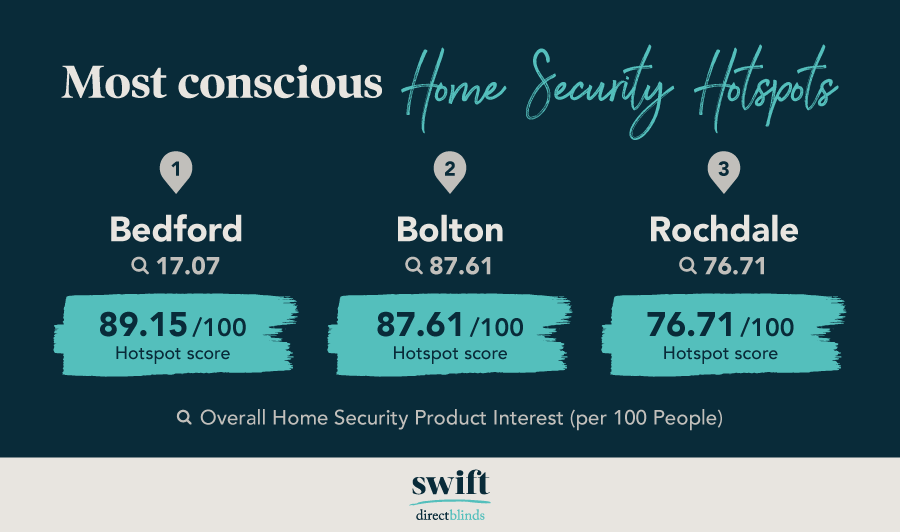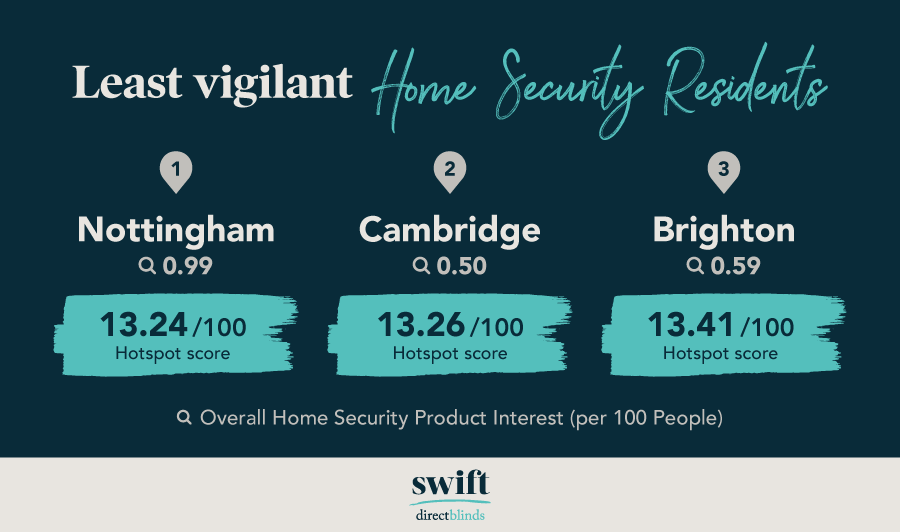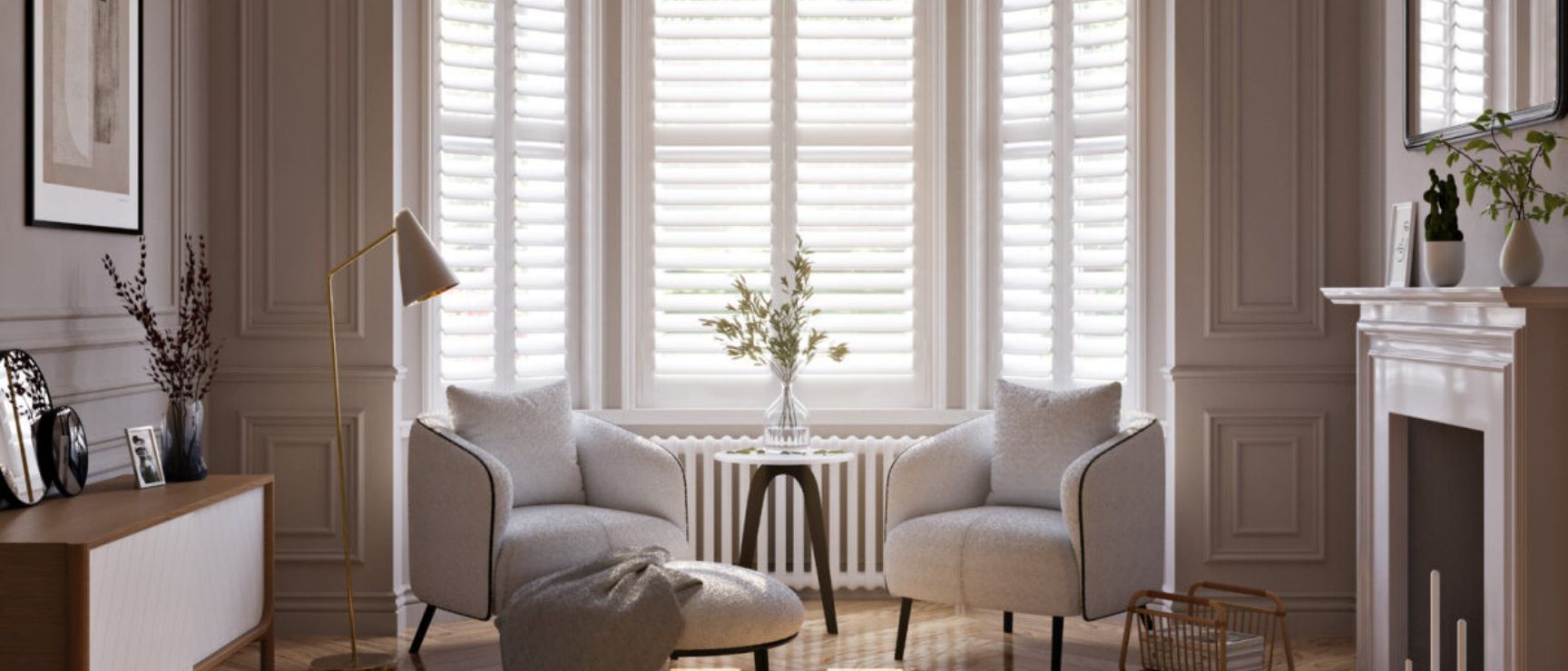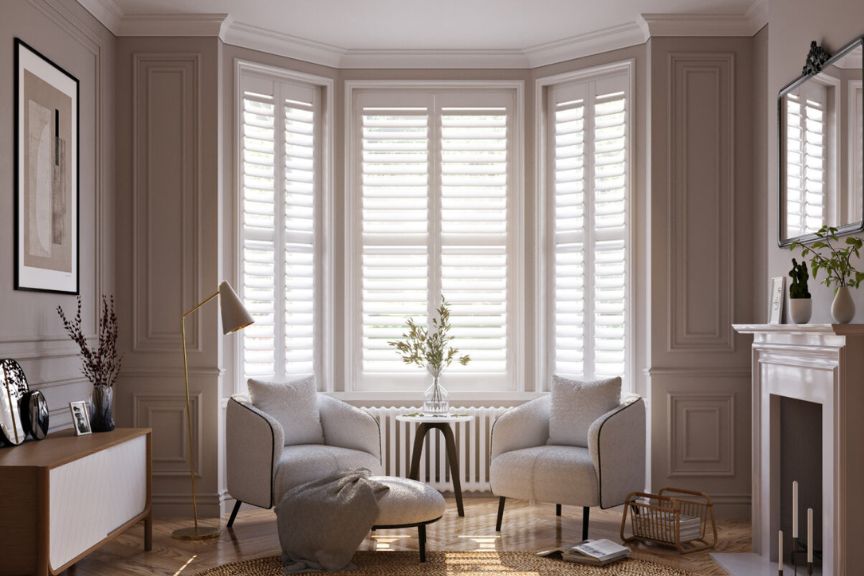New technology is making it easier than ever to stay safe at home, yet many homeowners still neglect to tighten their security to deter would-be thieves and nosy neighbours from taking a peek.
Even minor tweaks to your home’s design, such as a new pair of blinds or a locked safe, can help keep criminals out of your property and hide your valuables, so why is it that some areas of the UK appear less security-conscious than others?
Well, as our habits around home security evolve, we’ve used online search data from across the country to identify which cities and towns are most interested in home security, as well as those that are less invested.
In this blog, we’ll highlight the UK’s home security hotspots, so you can see whether your area is keeping up with safety trends. We’ll also list the most popular products and provide expert advice on keeping your property safe.
Check out our findings below!
Contents
The UK’s biggest home security hotspots
By looking at how many Google searches were made for different home security products across the UK, we’ve created an index of the towns and cities that care most about keeping their properties safe.
Each town was assigned a score of 0 to 100 based on the number of searches for home cameras, burglar alarms, and other products, and then ranked accordingly. Here are the regions that scored the highest in our home security index:


1. Bedford
With 17.07 security product searches per 100 people last year, Bedford ranks as the most safety-minded area of the UK. It scores 89.15 out of 100 on our security index – that’s more than six times higher than our lowest-ranked town!
2. Bolton
In second place, we recorded 16.7 searches per 100 residents in Bolton between October 2024 and October 2025. This gave it an overall index score of 87.61 out of 100. Many towns in the Greater Manchester area place highly in our top ten, but Bolton ranks as the most security-conscious.
3. Rochdale
Nearby Rochdale also earns a podium finish in our home security hotspot rankings, with its total index score of 76.71 out of 100. That’s equal to 13.72 average searches for security products out of every 100 people in the town last year.
4. Plymouth
In fourth place, Plymouth scores 76.01 on our home security index, putting it less than one point behind Rochdale in our rankings. With 11.85 searches per 100 people over the last 12 months, it’s one of the UK towns with the most interest in security products.
5. St. Helens
Marking the halfway point in our top ten is St. Helens, with 13.1 searches for security products per 100 residents (between October 2024 and October 2025). This gives it a total index score of 71.70 out of 100.
6. Oldham
Another Greater Manchester town, Oldham, ranks at #6 in our top ten home security hotspots in Britain. With an index score of 68.08 out of 100, it has one of the highest search interest levels for home security in the country, averaging 12.83 queries per 100 people last year.
7. Stockport
Finishing off our tour of the Greater Manchester area is Stockport, which averages 10.64 searches per 100 citizens for security products across 12 months. This gives it a total score of 68.08 on our list, reflecting the wider regional interest in home safety.
8. Peterborough
Moving further south, Peterborough averaged 11.16 searches per 100 people last year, ranking it #8 in our data. It finishes with a score of 63.52 out of 100 in our home security index.
9. Leeds
In ninth place, Leeds averaged 12.45 home security searches per 100 people last year and scored 61.68 out of 100 on our index. This makes it the city in Yorkshire with the most search interest in safety measures.
10. Worcester
Rounding out our top ten home security hotspots in the UK is Worcester, which scores 60.35 in our overall index. With 10.67 searches per 100 residents and 30 fewer points than our #1 town, it shows how widely attitudes towards home security vary at the top of our list.
The UK’s least home security-conscious residents
Now that we’ve looked at the areas with the most searches for security products, what does the other end of the rankings look like? These cities and towns have the least interest in protecting their homes, according to online search data:


1. Nottingham
Nottingham averages fewer than one home security product search per 100 people (0.99) across the last 12 months. This gives it a shockingly low index score of 13.24, making it the city with the least interest in home security in the country.
2. Cambridge
Cambridge doesn’t rank far behind, with 1.5 searches for security products per 100 residents last year. Its index score of 13.26 out of 100 is just 0.2 points ahead of our lowest-ranked city.
3. Brighton
With a score of 13.41 on our index and an average of 1.59 searches per 100 people last year, Brighton ranks as the British city with the third-lowest interest in home security.
4. Southampton
While Plymouth ranks highly on our list, Southampton continues a trend among the rest of the south coast, where people seem unbothered by home security. The city has the fewest product searches per 100 people in our bottom ten, averaging just 0.74 over the last 12 months, giving it an index score of 14.17.
5. Belfast
Northern Ireland makes its first and only appearance in our bottom ten, with Belfast recording 3.13 home security searches per 100 residents last year. This gives it a final score of 15.26 on our index.
6. Gillingham
The largest town in the borough of Medway, Gillingham, has an average of only 2.37 searches for security measures per 100 people in the last year. Scoring 16.36 in our home security index, it finishes sixth from the bottom, making it the town in the home counties with the least search interest in safety.
7. Watford
Watford seems to be one of many towns around London that rank near the bottom of our home security index, with only 3.05 searches per 100 residents over the past 12 months. It receives a final index score of 17.39 out of 100 in our data.
8. Milton Keynes
Another city on the outskirts of London with a low home security rating is Milton Keynes. Last year, an average of 4.64 searches for related products per 100 people were made in the city, earning it an eighth-place finish on our list and a final score of 17.91.
9. Slough
Continuing the trend of towns near London with a low search interest for security products, Slough finishes at #9. It scores 18.84 on our home security index, with 3.75 queries per 100 people made last year.
10. Sunderland
Finally, Sunderland finishes our list of the ten British areas with the fewest searches for home security products. We found just 2.36 queries per 100 people in the city between October 2024 and October 2025. This gave it a final score of 19.62 out of 100.
The most popular home security products


1. Video doorbells and entry systems
Across the UK, around 1.6 video doorbell searches were made per 100 Brits last year. These devices provide a live video feed of your home's exterior, allowing you to keep an eye on potential intruders from anywhere in the world via a handy mobile app. Many options also come with a speaker and an alarm, allowing you to scare off any lurking criminals.
2. CCTV and security cameras
While video doorbells are a cheap solution for front-door safety, CCTV footage can provide 24/7 coverage of hard-to-reach areas on your property, which may be why 0.37 searches were made for the technology per 100 Brits last year.
3. Locks and access control
Although they may seem like an obvious and basic choice, a sturdy lock can prevent break-ins for anyone who doesn’t have the right key. And it seems that plenty of Brits are clocking on to this, with 0.36 searches for locks being made per 100 people in the UK last year.
How have our home security habits shifted?
So, what can we learn from our data? First of all, tech-related security is seeing a massive rise in popularity, with searches for these products outnumbering searches for traditional security systems like locks. As we become more reliant on our smartphones, video doorbells are an easy way to receive constant updates on your home's security, with many popular models available.
We can also see that, despite fewer burglary threats, smaller towns are often more concerned about privacy. Areas like Bedford and Bolton, which have much smaller populations than larger cities, are outranking crime hotspots like London in search interest for home security measures.
Meanwhile, larger northern cities like Manchester (2.89 average searches per 100 people) and Liverpool (4.43) show a surprising lack of interest in securing their homes.
Using shutters as a security solution
Alongside newer developments such as security cameras and burglar alarms, installing well-fitted shutters on your home can also help prevent crime. Whether you’re blocking out your windows to stop thieves from scouting out your valuables or making break-ins more difficult, they can be used in conjunction with other security measures to help lock down your home from criminals.
Other, more basic techniques can also help you guard your home. Try leaving a light on when you’re away to fool burglars into thinking you’re home or ask a neighbour to keep an eye on the property. You could even add warning signs, such as a “beware of the dog” sticker, to scare off potential intruders.
What do the experts say about home security?
Following our study, we spoke to interior expert Kate O’Brien to get her opinion on home security, as well as her tips for how we can improve security in our daily lives:
“To keep your home as safe as possible, make sure you minimise the risk of break-ins with lockable windows and secure, sturdy doors. While measures like video doorbells and CCTV are handy for monitoring risks, adding features to prevent intruders will ensure these systems can’t be easily bypassed.
“Shutters and blinds can also play a key role in protecting your home. They can obscure the vision of potential intruders and block access to entry points. With a variety of shutters and blinds available to suit windows of every shape and size, it’s easy to stop thieves from gaining critical data on your home.”
Methodology
To uncover the UK’s favourite ways to stay safe at home, we analysed Google search data, using the DataForSEO API to collect location-specific search volume data across the UK for the past 12 months.
Searches were then grouped into six main product categories:
- CCTV and security cameras.
- Security lighting and motion sensors.
- Video doorbells and entry systems.
- Safes and secure storage.
- Burglar and house alarms.
- Locks and access control.
Each category was then defined by a curated list of keywords:
- Video doorbells and entry systems: video doorbell, smart doorbell, eufy e340, ring doorbell, nest doorbell, arlo doorbell, tapo doorbell, and doorbell camera.
- CCTV and security cameras: home CCTV, security camera, home CCTV camera, home CCTV camera system, outdoor security camera, indoor security camera, and home security cameras.
- Burglar and house alarms: burglar alarm, burglar alarm system, house alarm system, home alarm system, smart home alarm, smart home alarm systems, and wireless alarm system.
- Locks and access control: smart door locks, keypad door lock, fingerprint lock door, keyless entry door lock, window locks, bolt lock, and door lock.
- Security lighting and motion sensors: motion sensor lights, security lights, outdoor security lights, security lights with motion sensor, security floodlight, motion detector light, and pir motion sensor.
- Safes and secure storage: safe for home, wall safe, security box, home safe, fireproof safe, and small home safe.
We then aggregated the total search volume of each category over the past 12 months for each location. And to ensure a fair comparison, we also normalised the data using population figures from World Population Review, expressing results as searches per 100 people so that larger cities did not dominate due to population size.
To capture recent momentum, we additionally calculated the average monthly growth rate using the most recent six months of search data. This represents the month-on-month percentage change in search interest based on its current trajectory.
Finally, both datasets were then normalised to a 0–1 scale and combined into an index score, weighted 75% to per-capita search volume and 25% to the average monthly growth rate.
This created a balanced measure that highlights areas with strong existing demand and those with rising or sustained interest in home security.
The final dataset allows filtering by product category to identify regional trends, compare total search interest, or rank locations by overall home security interest.




